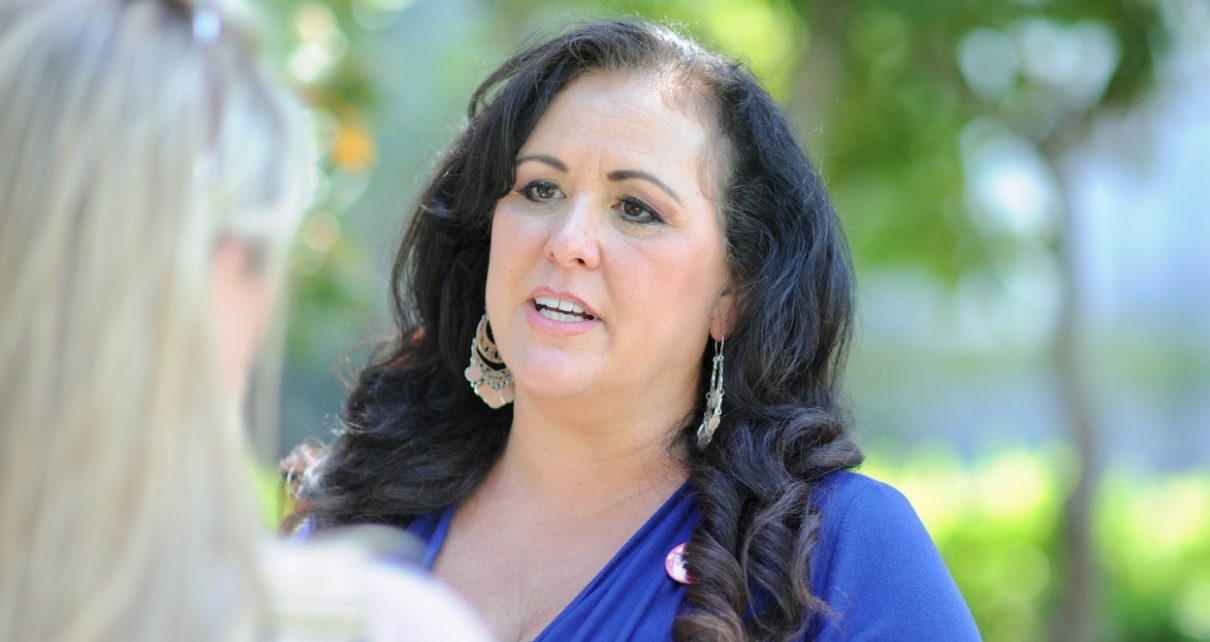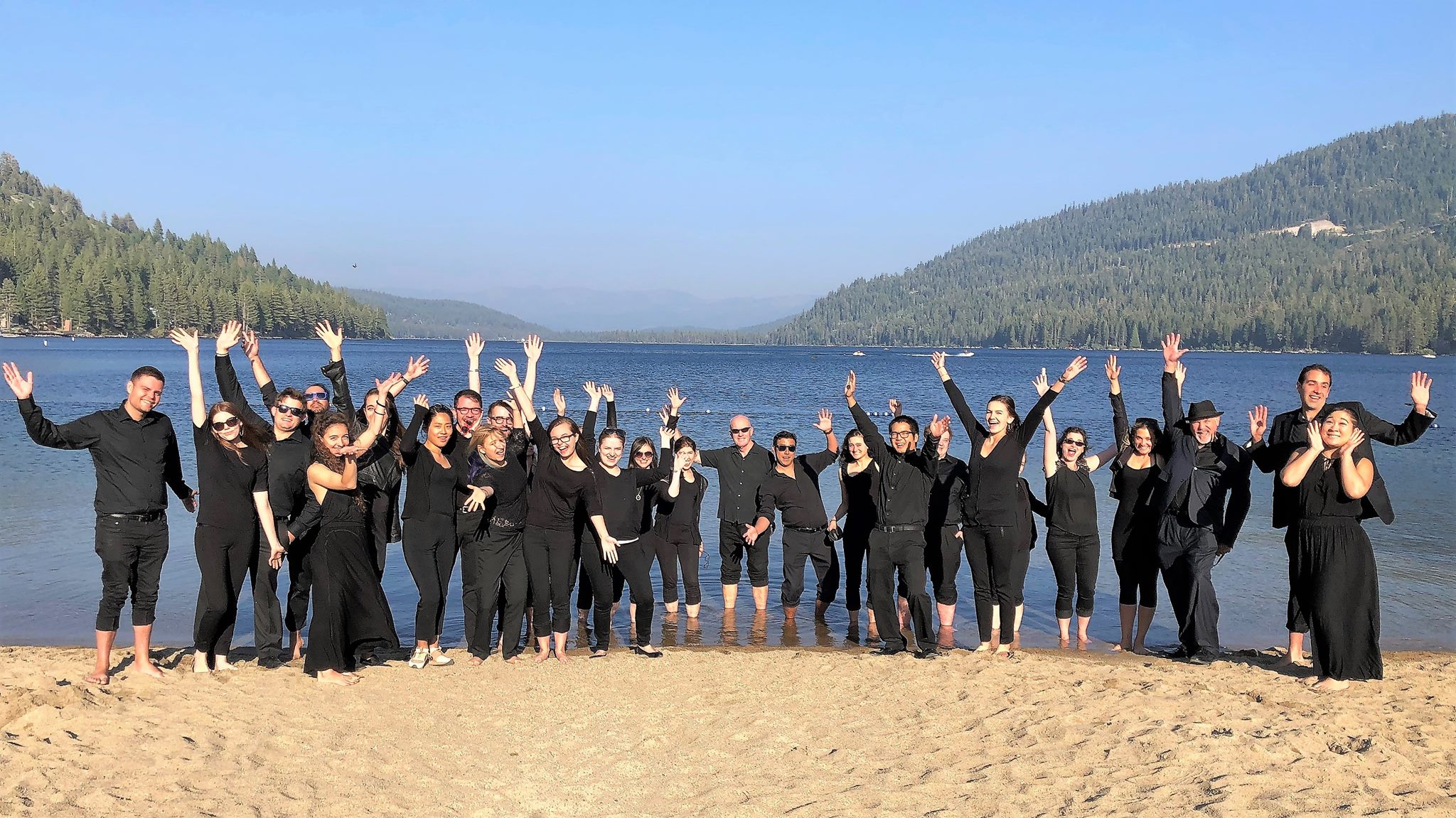
Assemblywoman Lorena Gonzalez. (Photo: Kevin Sanders for California Globe)
Musicians and Music Professionals to Receive AB 5 Exemption
‘There was a lot of damage that was done to people’s careers and livelihoods they don’t want to acknowledge’
By Evan Symon, April 18, 2020 2:09 am
On Friday, several music industry organizations announced that musicians and music professionals will receive an exemption from the independent contractor limiting Assembly Bill 5 law.
Another industry getting an AB 5 exemption
Musicians, who have been trying to get an exemption from the law since earlier this year, reached an agreement with Assemblywoman and AB 5 author Lorena Gonzalez (D-San Diego) and Assembly Majority Leader Ian Calderon (D-Whittier) to amend AB 5. The language would allow music professionals to use the Borello test to figure out if a musician is an independent contractor or not, as opposed to AB5’s far more stricter and limiting test. This would allow musicians to continue to receive money from paid gigs and sessions rather than being listed as an employee to receive competition.
In a series of tweets, Assemblywoman Gonzalez noted the amendment changes, with most musician independent contractor laws being moved back under the old pre-AB5 system.
With respect to the music production process, amendments will preserve the ability for the following industry professionals to collaborate & contract with one another to produce sound recordings & musical compositions without application of the ABC test to determine employer:
— Lorena (@LorenaSGonzalez) April 17, 2020
With respect to standalone live performances, the amendments will also specify that unless a musical group specifically falls into one of groups below, the musicians will be subject to the less strict pre-Dynamex test to determine classification.
— Lorena (@LorenaSGonzalez) April 17, 2020
In addition to many music organizations such as the Recording Industry Association of America (RIAA), the American Association of Independent Music (A2IM), and the Songwriters of North America (SONA), many encompassing unions also agreed to the terms. Among the largest unions to agree to the new amendment were the Teamsters, International Allegiance of Theatrical Stage Employees (IATSE), and the Screen Actors Guild (SAG-AFTRA).
Many music professionals praised the amendment, noting that the many differences between between how a musician works versus how a normal contractor works were finally addressed in the amendment. Jordan Bromley, a board member of the Music Artists Coalition (MAC) who led the negotiations for music industry groups, said as much in a statement.
“I am proud to be a part of this amazing consensus,” Jordan Bromley said in a statement. “Having worked personally with every stakeholder in the process for the last year, I can say that each elected official, coalition, association, union and individual working on behalf of their constituency truly cared about not only the members they work to protect, but also our industry as a whole.”
“By reclassifying our economy of independent contractors into employees, the law ran the risk of making an employer of every independent artist making music in their basement, or garage band making ends meet to succeed in music. We kept the economy intact, but provided for any musician, recording artist or vocalist who got paid less than minimum wage to be able to appeal to the state for compensation.”
Disappointment over how long the exemption took
However, many musicians, who had been greatly affected by AB 5, voiced their disappointment in that it took this long for an amendment to be added. Many have struggled due to the new regulations, with many musicians falling short and gigs drying up due to the new law forbidding gig workers in favor of full-time employees.
“Gonzalez didn’t know what she was doing,” said Rocco Tacchia, a booking agent who frequently hires musical acts. “Even if you’ve seen it in movies, you know that many up-and-coming musicians rely on gig work for money, experience, and to get their name out there. That means going to different places each day. Different venues. Getting paid by different people.”
“What happened was insane because suddenly we couldn’t do that anymore. A lot of bands I know couldn’t get work because of AB5, with some places flat out telling me that it was impossible to give them a few nights because of how payment was now structured.”
“I know at least 5 good bands, one of which was in talks for a record deal and one of which had just scored a minor hit on YouTube, who had to stop because the floor just went out beneath them.”
“I’m happy it’s in place now. Musicians all around are. But there was a lot of damage that was done to people’s careers and livelihoods they don’t want to acknowledge.”
AB 5 exemptions have been an ever changing matter of debate for California in 2020. Truckers received an exemption before the music industry in January. Freelance journalists and writers were close to an exemption earlier this year, but after a few strikedowns they are currently looking to take the matter to federal court. Rideshare services are currently in also in court looking for at least an exemption, if not taking down the entire law. The advent of the COVID-19 coronavirus has also changed up things, with many experts now calling for the Governor to stop AB 5 to help people get work and reopen the economy.
The new AB 5 musician exemption amendment is expected to be brought forward in the Assembly when the state legislature reconvenes in early May.
- Bill to Require Law Enforcement Disclosure if AI Was Used To Help Write Reports - August 7, 2025
- Gov. Newsom Files FOIA Request To ‘Expose True Cost’ Of L.A. Federal Troop Deployment for Anti-ICE Riots - August 6, 2025
- California Redistricting: How Newsom’s Plan Will Demolish Hard Fought GOP Gains - August 6, 2025





Congratulations to the musicians!
I’m retiring next year at the age of 70 and my company has already notified me that I will not longer be able to work for them part time on as-need basis because of AB 5. I had planned work for them once in a while just to supplement my retirement income. Oh well. As a mid level professional, I really can’t think of anything that Sacramento has done to directly better my life in the past couple decades unless you consider paying more taxes and getting nothing in return a benefit. .
Democrats’ appetite for power and control is at least that of zombies for living flesh…and they never, ever, ever, ever stop until you shoot them in the head. So, load up.